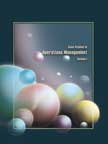Nordstrom's Perpetual Inventory System |
ICMR HOME | Case Studies Collection
» Operations Case Studies Please note: |
||||||||||
|
"Nordstrom has always been torn between the art and science of retailing. It mastered the art -beautiful store designs and marketing, for example. But it always stumbled on the science - inventory management." - 'Can the Nordstroms Find the Right Style?' BusinessWeek, July 30, 2001. "They have the gold standard of service, but that has come with higher costs, outdated inventory management and point-of-sale systems. - 'Nordstrom Loses its Luster,' Forbes, January 05, 2001. Inventory 'Mis' Management
The fact that Nordstrom had been scaling down its growth plans in the wake of declining sales (especially men's merchandise) further fuelled the rumors. The 2001 annual shareholders meeting of Nordstrom thus saw Chairman of the Board, Bruce Nordstrom, having a tough time trying to convince shareholders that there were no plans to sell the company. The scene was reminiscent of the 2000 annual shareholder meeting when the company had to accept openly that the management had gone wrong with a faulty marketing initiative called 'Reinvent Yourself.'
Analysts said that a majority of the company's problems could have been avoided had it been careful enough to understand the changing dynamics of the retailing industry. Nordstrom had for long been criticized by industry observers for not focusing enough on its inventory management/merchandising practices. It had not invested in the required technology for this purpose even as the other players put in place sophisticated, state-of-the-art inventory management systems. Nordstrom's Perpetual Inventory System - Next Page>>
1] 'Can the Nordstroms Find the Right Style?' BusinessWeek, July 30, 2001. |
Case Studies Links:-
Case Studies,
Short Case Studies,
Simplified Case Studies.
Other Case Studies:-
Multimedia Case Studies,
Cases in Other Languages.
Business Reports Link:-
Business Reports.
Books:-
Text Books,
Work Books,
Case Study Volumes.



